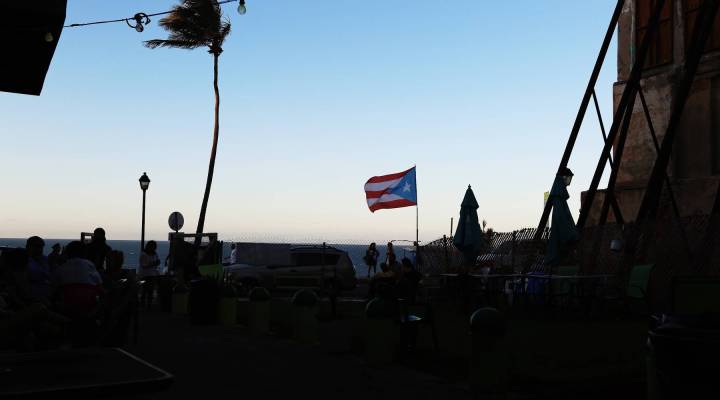
Would a Puerto Rico default hurt all municipal bonds?
Would a Puerto Rico default hurt all municipal bonds?

Puerto Rico has racked up some pretty serious debt. At last check, it’s more than $70 billion. The territory says it can’t make payments on it. And lots of people are talking about what to do about it. Congress is considering a debt relief bill. The “Hamilton” creator and star, Lin-Manuel Miranda, even put together a performance about it on Last Week Tonight with John Oliver on Sunday.
Puerto Rico is in this jam partly because of an action Congress took 30 years ago, when it took away Puerto Rico’s right to Chapter Nine bankruptcy protection. Why?
“I don’t know why that was done, why it was found attractive,” said Kent Hughes, public policy fellow at the Wilson Center. “Maybe it was a kind of trade off for getting the extensive federal incentives for companies to locate there. I just don’t see any public policy reason why that would be done.”
Hughes isn’t alone. If the territory could file for bankruptcy, it would have already done it, and a judge would be figuring out an orderly way for creditors to get paid.
If Puerto Rico does default, there’s concern among bond holders that it will shake up the municipal bond market at large. John Mcdermott, a fixed income specialist with Stoever Glass on Wall Street, said the issue is general obligation bonds, which are constitutionally backed by the island.
“Bond holders at general obligations generally get paid 100 cents on the dollar,” he said. “They’re way ahead of the other creditors. However, Puerto Rico is trying to redefine that status.”
Puerto Rico isn’t a state, so it’s arguing its restructuring wouldn’t apply on the mainland. Officials have also said Puerto Rico will now have to shut down public services to make debt payments, because the constitution says it has to pay creditors before it does anything else. Hughes said bond holders have to be skeptical about whether the island will do that.
“Would you really picture any state making that kind of offer and just say, ‘well, we’re just going to turn off the power to the hospitals and good luck to those patients, but we’ve got to pay those debt holders first?’”
It may sound crazy but it’s not out of the question. The island has already closed more than 150 schools, laid off thousands of government employees and it still can’t make those interest payments.
There’s a lot happening in the world. Through it all, Marketplace is here for you.
You rely on Marketplace to break down the world’s events and tell you how it affects you in a fact-based, approachable way. We rely on your financial support to keep making that possible.
Your donation today powers the independent journalism that you rely on. For just $5/month, you can help sustain Marketplace so we can keep reporting on the things that matter to you.


















